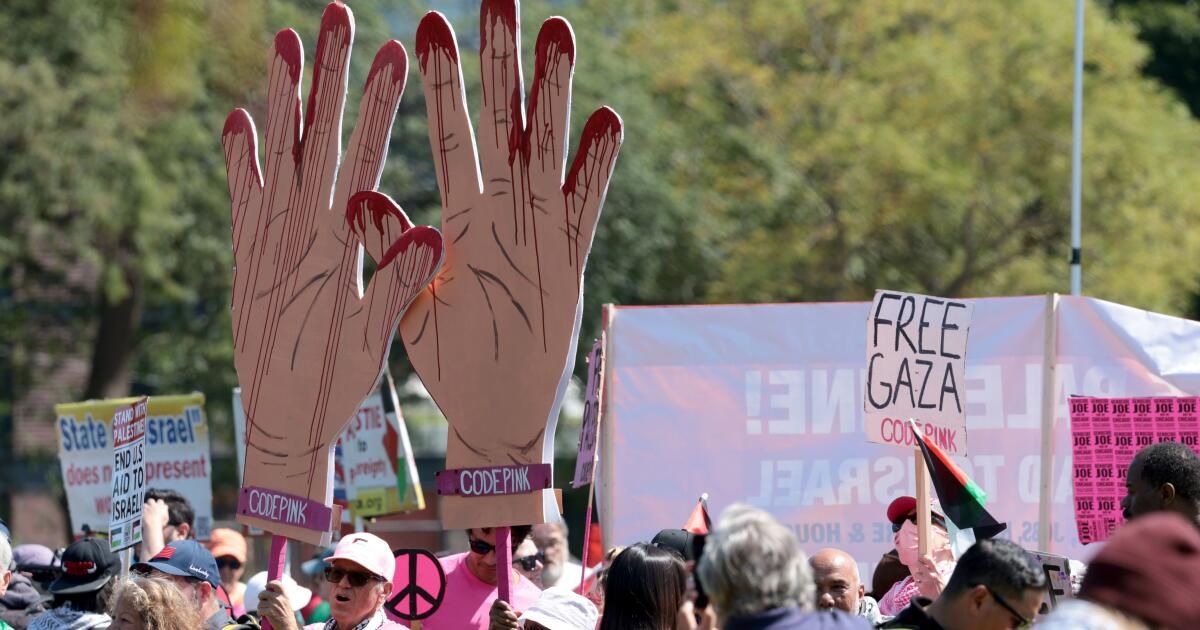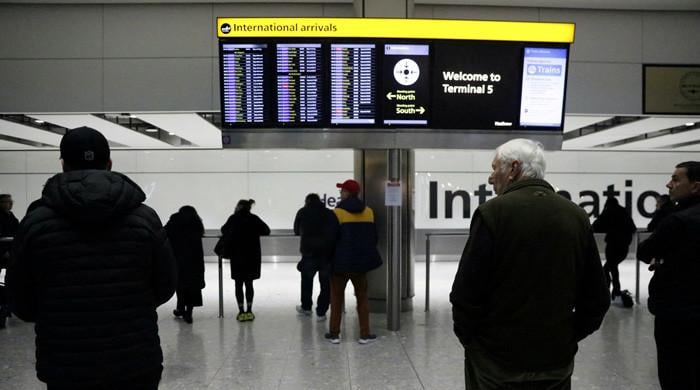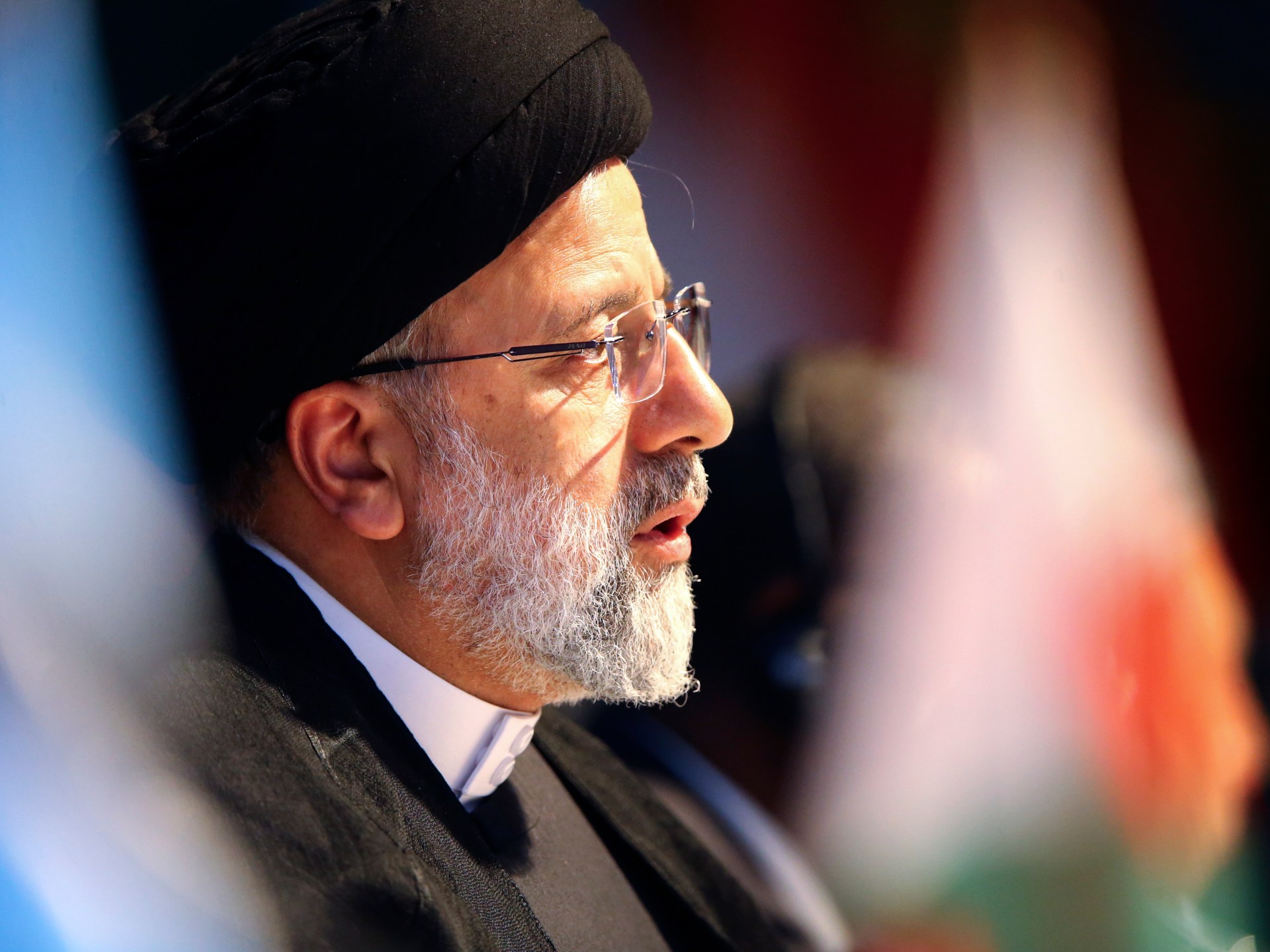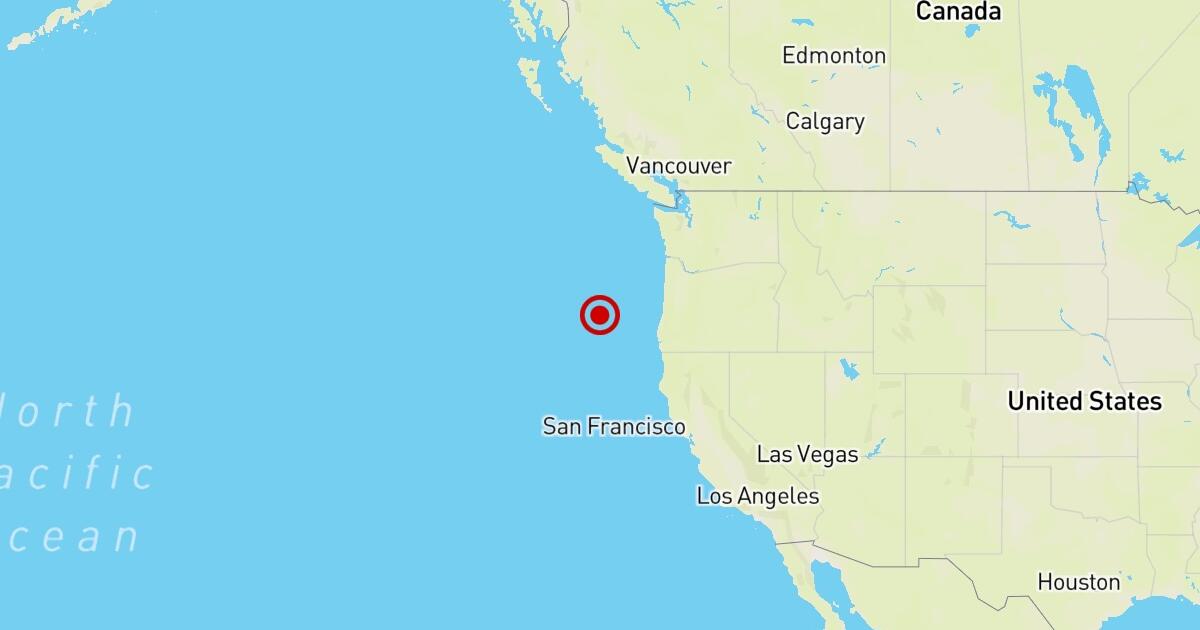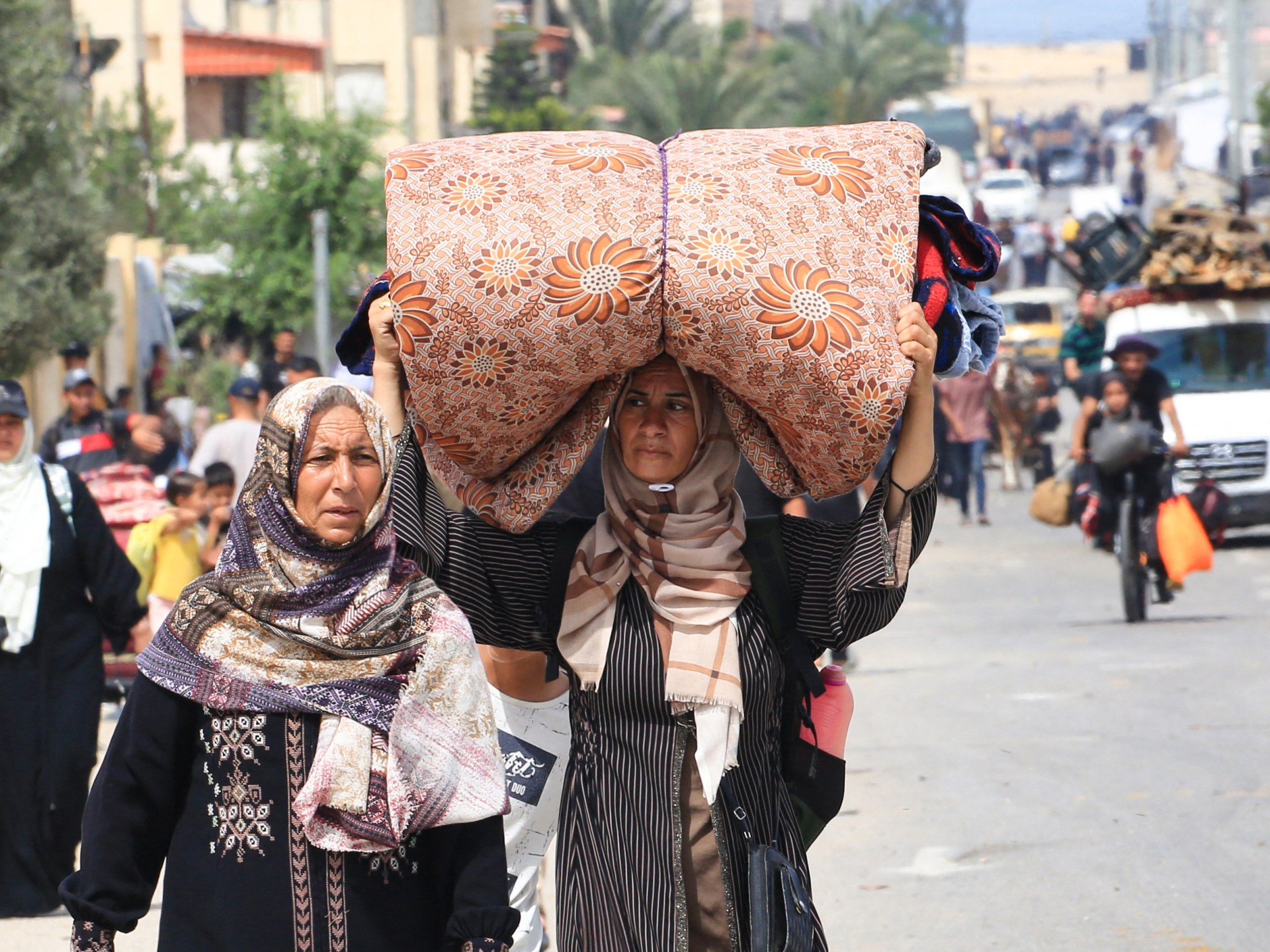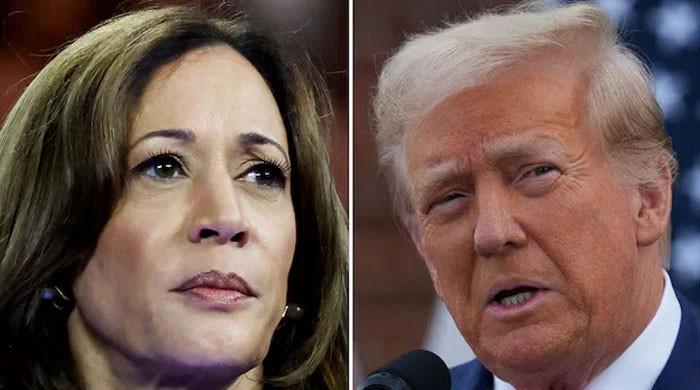As Democrats across the country gather in Chicago to officially crown Vice President Kamala Harris as their nominee, another group descended on the city in protest of the Biden-Harris administration’s actions in the Israel-Hamas war — a stark reminder of the divisions that still dog the party despite a show of unity from its new nominee.
Some 3,000 protesters gathered in Chicago’s Union Park on Monday morning, carrying signs that read: “Stop the war,” “We’re trying to help you, Kamala” and “Ditch Harris ’24.”
“Harris, Harris, you can’t hide,” they chanted as they headed to the United Center to express their frustration with the Biden-Harris administration. “We accuse you of genocide.”
One protester held up a giant, eye-catching caricature of Harris and President Biden, fangs pointing from their angry faces. Harris's hand held a sign that read: “Billions in American Aid.”
The Coalition to March on the Democratic National Convention (DNC), an affiliation of more than 200 activist groups from across the country, is planning two large protests during the four-day Democratic National Convention.
In addition to Monday’s rally, a protest is planned for Thursday that will roughly coincide with Harris’ keynote speech at the convention. Several smaller protests have been planned throughout the week. Organizers said before Monday’s march that they expect thousands, and perhaps tens of thousands, of protesters to descend on the Democratic convention.
On Monday, the crowd was smaller than many organizers had expected. But Hatem Abudayyeh, a spokesman for the coalition, said before the march began that he was pleased with the “thousands” of people who had taken part. He still believed that total participation in protests over the week could number in the “tens of thousands.”
“I love the numbers,” Abudayyeh said. “I love the diversity of the audience. I love the passion of the audience.”
Monday’s protest offered a platform for a variety of groups. Pro-Palestinian activists mingled with democratic socialists in the grassy park, while Jesus evangelists preached to the crowd through megaphones and an occasional truck flying a giant Trump flag drove by.
The march had not formally begun when a small group carrying Israeli flags entered the park. A minor scuffle ensued as pro-Palestinian protesters quickly surrounded them, chanting “Freedom, freedom for Palestine!” and forcing the pro-Israeli protesters to cross the street.
Rows of police on bicycles quickly separated the two groups of protesters.
But the mood was largely peaceful and lively as protesters gathered in Union Park ahead of the march. A pair of Muslims with kaffiyeh scarves wrapped around their heads bent down on the grass to pray.
As a small group of anti-abortion activists stood in a corner of the park, chanting “Shame!”, pro-Palestinian protesters formed a circle around them and stood silently, arm in arm.
Those who showed up to protest expressed mixed feelings about Harris’s rise to the Democratic presidential nomination. Some said they expected her to work harder for Palestinian rights than Biden. But others held her equally responsible for what they see as Democrats’ blind support for Israel.
“Killer Kamala is sending bombs,” protesters chanted as they marched down Washington Street, passing rows of police officers using their bicycles to block access to the sidewalk. “They are killing children, fathers and mothers.”
Jacob Smith, a 32-year-old software engineer from Detroit, joined a busload of Michiganders for the pro-Palestinian protest in this city. While their main goal was to condemn the war, Smith also hoped the gathering would push the Democratic Party further to the left on other issues, such as raising the minimum wage and addressing the housing crisis.
Smith, a registered Democrat, said he planned to vote in November but had not yet decided whether to support his party’s nominee. Unless Harris supports a permanent cease-fire and arms embargo, Smith said, he would likely vote for the Green Party’s Jill Stein, even in the key swing state of Michigan, where Harris and Donald Trump are battling for every vote.
“It's definitely my responsibility to use my vote if I can try to stop genocide,” Smith said.
Michelle Cohn, 68, who traveled to Chicago from St. Paul, Minnesota, wearing a pink scarf and a pink hat that read “Malibu, California,” said she hoped to vote for Harris but “can’t stand her war politics.”
“Democrats have become the party of war,” the lifelong Democrat said. “I can’t sit back and play with my grandchildren without doing something for all the other children who are being killed.”
One of the counterprotesters, Daniel, who declined to give his last name, disputed that account. Arriving in Union Square with members of his church and other Christians for Israel, wearing an Israeli flag on his back and carrying another in the air, he said he had visited Israel shortly after the Hamas attack on Oct. 7 and had witnessed the aftermath.
“We have to make sure that people don’t forget what the cause was: that Israel was attacked, that hostages were taken, that babies were murdered and slaughtered in a horrible way,” he said.
Carlos Montes, a longtime activist from Boyle Heights, traveled from California to Chicago to join protesters this week outside the Democratic National Convention.
(James Rainey/Los Angeles Times)
While many Democrats are jubilant about their new nominee, sections of the party's left wing will focus their protests on progressive issues. The coalition is demanding that Democrats support funding for jobs, housing, health care and education, not money to finance the war between Israel and Hamas.
But the broad range of imperatives advocated by protesters also includes, for example, a demand that the government grant legal status to the estimated 11 million immigrants now believed to be living in the United States without legal documents.
Protesters came from across the United States, many of them traveling through the night on Sunday in caravans of cars, chartered buses and trains to arrive in time for the start of the demonstration at noon Monday.
Wassim Hage of Oakland joined a group of about two dozen Bay Area activists who came to demand “a permanent ceasefire in Gaza and an arms embargo on Israel, ahead of the 2024 elections.” The demands also include an end to “billions of dollars of U.S. government arms funding.”
Hage, 30, noted that Bay Area cities such as Hayward and Richmond that passed resolutions favoring divestment from Israel had been at the forefront of the antiwar movement. They protested against massive spending on Israel, she said, at a time when “rents are skyrocketing in our state, school teachers in San Francisco aren’t getting paid on time and communities are suffering.”
“This is an unacceptable situation,” Hage said. “Billions of dollars are going to bomb children in Gaza, while our own communities in the Bay Area and across California are not doing well at all.”
The Chicago demonstrations represent the highest-profile pro-Palestinian protest efforts since a series of demonstrations that swept across American college campuses last spring.
Organizers predicted that months of planning would result in well-managed events, with an in-house security team, first responders and volunteer lawyers to monitor interactions with police and any outside agitators.
“It’s going to be a very well-organized and peaceful action,” said Carlos Montes, a progressive activist since the 1960s who came from Boyle Heights to take part in this week’s actions. “We don’t want to recreate what happened in Chicago in 1968, right?”
In 1968, between 9,000 and 10,000 anti-Vietnam War protesters filled the streets of Chicago during the Democratic National Convention. The city's police department responded with massive force, and the ensuing violence created indelible images, which Richard Nixon used to great effect in his successful campaign for the presidency against Hubert Humphrey.
“This time we’re saying, ‘Bring your grandmother, bring your children,’” said Montes, 77, a former member of the leftist Brown Berets, a Chicano rights group.
Local leaders noted that the city had changed markedly since the reactionary administration of Mayor Richard J. Daley, who demanded a hyper-aggressive response from the Chicago police to the 1968 demonstrations.
But Monday's organized march was smaller than the 1968 protests and ended without major clashes or disruptions.
The activists filed into a small park within earshot of the United Center. Spectators and members of the press climbed onto playground equipment as protesters filled the grassy mound.

